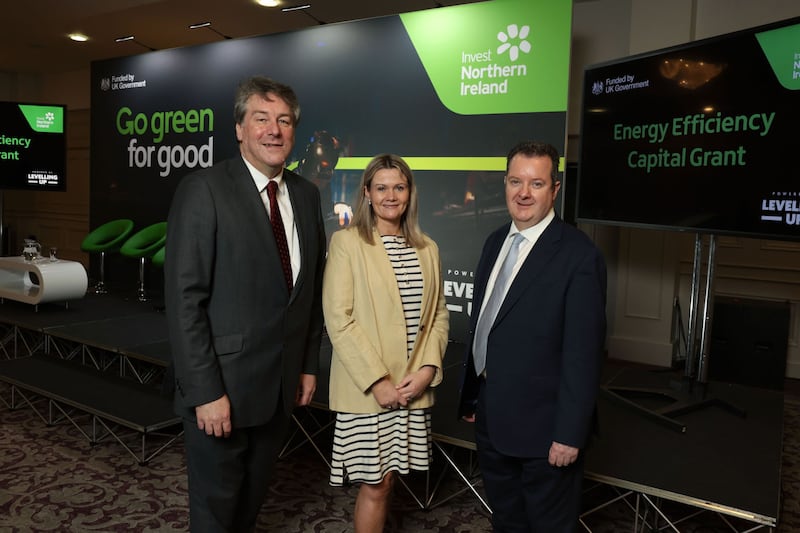AFTER years on the defensive over its effectiveness, Sir Michael Lyons’ January 2023 report effectively tore the plaster off Invest NI in one brutal swoop.
The ex-BBC chairman’s 371-page report calling for “urgent” and “profound change” within the organisation left it little room for it to manoeuvre.
Nine months on, and Invest NI has now laid out how it plans to to fundamentally change as an organisation.
Some of the more toxic issues appear to have been addressed already, aided by the February recruitment of experienced ex-banker Colm McKenna.
Top of the agenda for the 35-point action plan published on Wednesday is a new permanent chief executive and a new chair.
Given the extent and nature of the criticism in the Lyons’ report, it would be surprising, incredible almost, if the next CEO of the organisation is recruited from within.
Read more:
- Invest NI will ‘pivot from job creation to raising productivity' – interim chair
- ‘It's an open secret Sinn Féin will pick economy ministry' – Invest NI chair
- Review of Invest NI calls for "profound change" within "damaged" economic agency
It brings to mind Tory ministers appearing at this week’s Conservative Party conference, calling for change and renewal after 13-years in power.
The stand-out change from Wednesday’s announcement is the switch from Invest NI being a job creator, to an agency that will work to address the north’s chronic and incessant low rates of productivity.
I’m reminded of the June 2021 announcement, when Invest NI offered £1.7 million to the multi-billion dollar Anglo-Indian conglomerate Hinduja Global Solutions, to create hundreds minimum wage home-based call handler jobs in the north.
The jobs were set up to service the UK Government’s Covid-19 response.
In a nutshell, a massive global organisation, which was awarded a UK Government contract, was then awarded more public money to subside its recruitment for low-paid call-handlers who had to supply their own hardware and premises.
In terms of instant media headlines, the 560 jobs sounded good. But in terms of the chronic problem of low productivity in the north, it’s hard to imagine the dial being moved, if at all.
There is no doubt addressing productivity is fundamental in the north.
Yet the pivot away from supporting new jobs, at a time when the Windsor Framework has created a unique economic opportunity for attracting investors the north, raises an eyebrow.
On Monday alone of this week, IDA Ireland announced 450 new tech and manufacturing jobs at three locations in the Republic.
Invest NI say it is promoting dual market access to potential investors. Yet the biggest announcement at the recent NI Investment Summit came from a services firm (EY), outside the remit of the Windsor Framework.
If Sinn Féin take the economy ministry as expected, if/when Stormont returns, it’s easy to see Invest NI being ‘encouraged’ to rethink its FDI strategy and start looking straight down the mouth of the gift horse.







